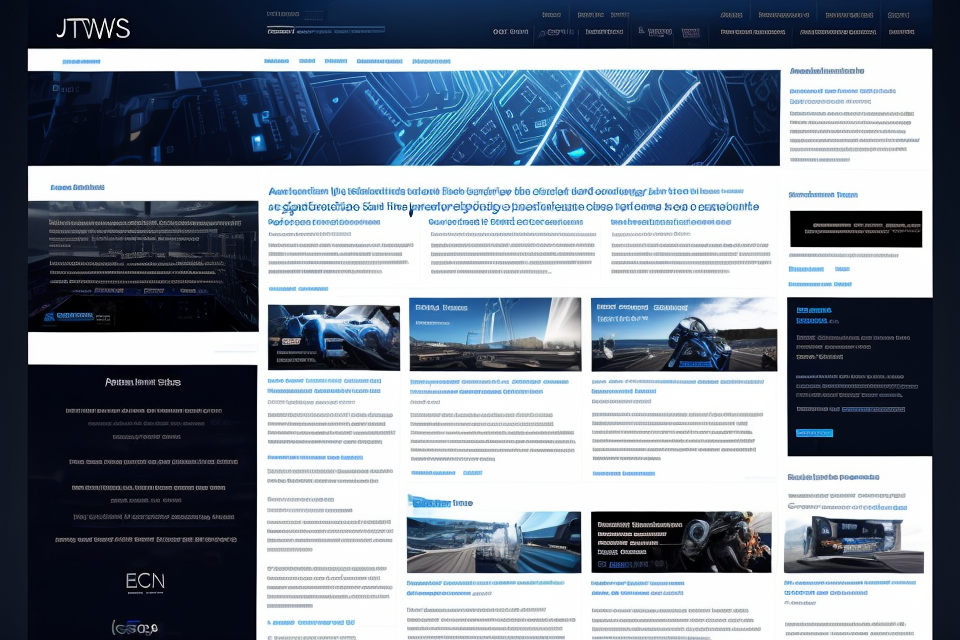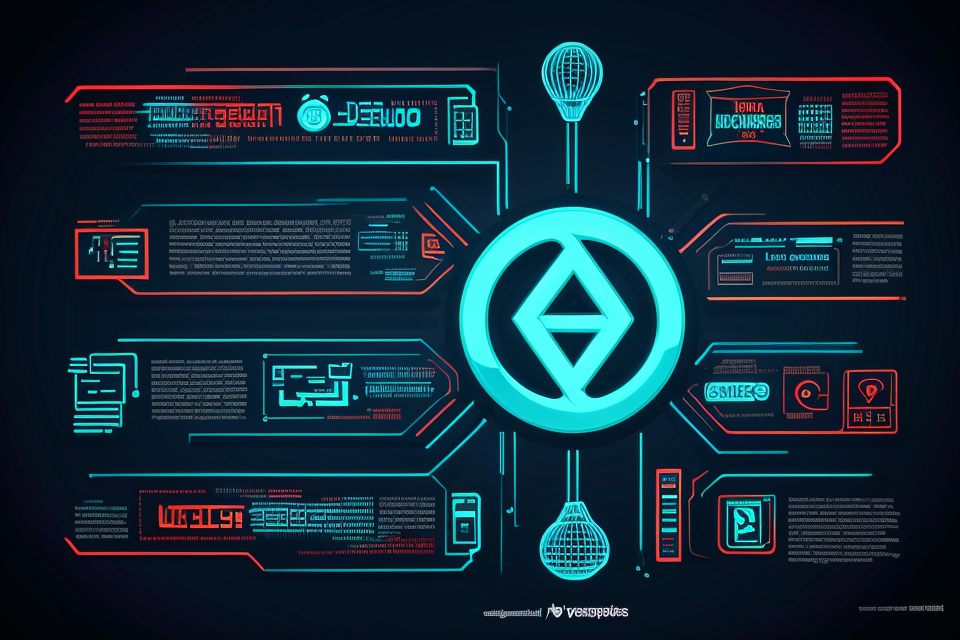Technology, a term that we hear every day, is an integral part of our lives. But, have you ever wondered what the original definition of technology was? In this article, we will delve into the history of the term and explore its original meaning. The definition of technology has evolved over time, and it has come to encompass a wide range of fields, from electronics and software to biotechnology and artificial intelligence. However, its original meaning was much simpler. Join us as we uncover the roots of this fascinating subject and discover how it has shaped our world.
The original definition of technology is the practical application of knowledge and skills to create tools, techniques, and systems that improve productivity and enhance human life. This includes the development and use of machines, tools, and processes to solve problems and meet human needs. Technology has been a driving force throughout history, from the invention of the wheel to the development of complex computer systems. It continues to shape and transform our world, enabling us to achieve things that were once thought impossible.
The Evolution of Technology Definition
Early Theories and Definitions
Philosophical Roots
The study of technology dates back to ancient times, where philosophers such as Plato and Aristotle contemplated the nature of technology and its impact on society. Plato believed that technology was a tool that could be used for both good and evil, while Aristotle saw technology as a means to an end, a way to achieve practical goals.
Technological Determinism
In the 19th century, the concept of technological determinism emerged, which posited that technology, rather than society, shapes human history. This theory was popularized by thinkers such as Thorstein Veblen, who argued that technology had a life of its own and was the driving force behind social change.
The Human Factor
As the field of technology studies developed, researchers began to focus on the role of humans in the development and use of technology. This led to the emergence of the “human factor” in technology, which recognizes that technology is not just a physical object, but also a social and cultural construct that is shaped by human behavior and values.
The Modern View of Technology
The modern view of technology is a far cry from the original definition of technology as a set of tools and techniques. In the modern context, technology is considered an amalgamation of science, engineering, and practical arts. It is viewed as a driving force behind social, economic, and cultural change, and its impact on society is both significant and multifaceted.
Integration of Science, Engineering, and Technology
In the modern view of technology, these three fields are not separate entities but are intertwined and integrated. Science provides the theoretical foundation for technology, while engineering translates scientific principles into practical applications. Technology, in turn, applies these principles to create innovative solutions to problems.
Technology as a Double-Edged Sword
The modern view of technology also recognizes that it can be a double-edged sword. While it has brought about tremendous benefits and improvements in various aspects of life, it has also created new challenges and ethical dilemmas. For example, the widespread use of social media has connected people across the globe, but it has also led to issues such as cyberbullying and privacy concerns.
The Interdisciplinary Approach
The modern view of technology emphasizes the importance of an interdisciplinary approach. It recognizes that technology is not just a field of study but a complex system that affects and is affected by numerous other fields, including economics, politics, sociology, and culture. This approach acknowledges that technology is not a standalone entity but is deeply embedded in the fabric of society.
The Future of Technology Definition
As technology continues to advance at an exponential rate, it is important to consider the future of technology definition. This includes exploring how technology will be defined in the future, and how it will impact society and culture.
Adapting to Technological Advancements
One of the key factors in the future of technology definition is the ability to adapt to technological advancements. This means developing new definitions and understanding of technology that can encompass new technologies and innovations as they emerge. This requires a flexible and dynamic approach to defining technology, one that can evolve and change as new technologies are developed and integrated into society.
A Universal Definition for the 21st Century
Another important aspect of the future of technology definition is the development of a universal definition for the 21st century. This definition should be comprehensive and inclusive, encompassing all forms of technology and their impact on society and culture. It should also be able to account for the rapid pace of technological change and the many different types of technology that will emerge in the coming years.
The Impact on Society and Culture
Finally, the future of technology definition must take into account the impact that technology will have on society and culture. This includes considering how technology will shape and change the way we live, work, and interact with one another. It also involves examining the ethical and social implications of technology, and ensuring that it is developed and used in a responsible and sustainable manner.
Overall, the future of technology definition will play a crucial role in shaping the way we understand and interact with technology in the years to come. By developing a flexible and comprehensive definition, we can ensure that technology is developed and used in a way that benefits society and culture as a whole.
The Importance of Understanding the Original Definition of Technology
Recognizing the Foundations of Technological Progress
Understanding the original definition of technology is crucial in comprehending the historical context that shaped the progress of technology. It allows us to appreciate the roots of technological advancements and grasp the underlying principles that have guided its development over time.
Recognizing the foundations of technological progress is essential in understanding how technology has evolved and the factors that have influenced its development. This involves examining the historical context in which technology emerged and the events that have shaped its trajectory.
One key aspect of recognizing the foundations of technological progress is understanding the role of human ingenuity in driving technological advancements. From the earliest tools made by our ancestors to the complex machines and digital devices we use today, technology has always been shaped by human imagination and creativity. By acknowledging the importance of human ingenuity, we can better understand the role that innovation and experimentation have played in the development of technology.
Another important factor in recognizing the foundations of technological progress is understanding the impact of social and economic systems on technological development. Throughout history, technological advancements have been driven by the needs and demands of society, as well as by the economic and political systems in place. By examining the ways in which social and economic systems have influenced technological progress, we can gain a deeper understanding of the factors that have shaped the direction of technological development.
Furthermore, recognizing the foundations of technological progress involves understanding the interplay between technology and culture. Technology has always been shaped by the cultural values and beliefs of the societies in which it emerges. By examining the ways in which technology has been influenced by cultural values and beliefs, we can better understand the role that technology plays in shaping our lives and the world around us.
Overall, recognizing the foundations of technological progress is essential in understanding the historical context that has shaped the development of technology. By examining the role of human ingenuity, social and economic systems, and culture in shaping technological advancements, we can gain a deeper appreciation for the complexity and diversity of technological progress.
A Balanced Perspective on Technology
Embracing the Benefits and Confronting the Challenges
The rapid advancement of technology has significantly transformed the world we live in. While it has brought numerous benefits, it has also posed numerous challenges. Therefore, it is essential to adopt a balanced perspective on technology to fully comprehend its impact.
One crucial aspect of a balanced perspective is recognizing the benefits that technology brings. It has revolutionized the way we communicate, access information, and conduct business. It has improved our quality of life by providing us with convenience and efficiency. Moreover, it has opened up new opportunities for innovation and creativity.
However, it is equally important to confront the challenges that technology presents. For instance, it has led to job displacement, widened the digital divide, and raised concerns over privacy and security. Additionally, the overreliance on technology has been linked to mental health issues such as social isolation and anxiety.
Promoting a Sustainable and Ethical Approach
To ensure a sustainable and ethical approach to technology, it is vital to address these challenges head-on. This can be achieved by investing in education and retraining programs to equip individuals with the necessary skills to adapt to technological changes. Moreover, it is crucial to establish ethical guidelines and regulations to protect user privacy and security.
Furthermore, adopting a sustainable approach to technology means promoting its responsible use. This includes encouraging digital detox, promoting the use of eco-friendly technology, and supporting initiatives that prioritize sustainability.
In conclusion, a balanced perspective on technology requires acknowledging both its benefits and challenges. By embracing the benefits and confronting the challenges, we can promote a sustainable and ethical approach to technology that benefits society as a whole.
Fostering Innovation and Progress
Learning from the Past to Build a Better Future
One of the key ways in which understanding the original definition of technology can foster innovation and progress is by learning from the past. By studying the history of technology, we can gain a deeper understanding of how it has evolved and how it has been used to shape society. This knowledge can then be applied to future technological developments, helping to ensure that they are designed with the best interests of society in mind.
The Role of Education and Awareness
Another important aspect of fostering innovation and progress through an understanding of the original definition of technology is education and awareness. By educating people about the true nature of technology and its potential impact on society, we can empower them to make informed decisions about its use. This can help to ensure that technology is developed and used in a way that is aligned with the values and goals of society as a whole.
In addition, by raising awareness about the importance of technology, we can also encourage more people to pursue careers in this field. This can help to ensure that there is a steady stream of innovative ideas and solutions that can continue to drive progress and improve the lives of people around the world.
Overall, by fostering innovation and progress through an understanding of the original definition of technology, we can help to ensure that it is developed and used in a way that is beneficial to society as a whole. By learning from the past, promoting education and awareness, and encouraging innovation, we can build a better future for all.
Reflecting on the Evolution of Technology Definition
The concept of technology has undergone a remarkable transformation over the years. It is crucial to reflect on this evolution to comprehend the current state of technology and predict its future trajectory.
The Need for Continual Reevaluation
Technology is an ever-evolving field, and it is imperative to reevaluate its definition continually. As new innovations emerge, our understanding of technology must adapt to encompass these advancements. Failure to do so can lead to a limited and outdated perspective on technology and its potential.
Charting the Course for the Future
Reflecting on the evolution of the technology definition helps us chart the course for the future. By understanding how the definition has changed over time, we can identify patterns and trends that can inform our predictions about where technology is headed. This knowledge can be invaluable in shaping our decisions about investment, innovation, and policy.
FAQs
1. What is the original definition of technology?
The original definition of technology is a set of tools, methods, and processes that are used to create, develop, and improve products, services, and systems. This definition was first introduced in the late 19th century and has since been refined and expanded to include a wide range of fields, including electronics, computing, engineering, and telecommunications.
2. Who first defined technology?
The concept of technology was first defined by the ancient Greeks, who used the term “techne” to refer to the skill and craftsmanship involved in creating things. However, the modern definition of technology as we know it today was first introduced in the late 19th century by thinkers such as Lewis Mumford and Marshall McLuhan.
3. How has the definition of technology changed over time?
The definition of technology has changed significantly over time as new fields and industries have emerged. In the early days of technology, it was primarily associated with manufacturing and industrial processes. However, as electronics, computing, and telecommunications emerged, the definition of technology expanded to include these fields as well. Today, technology is used to encompass a wide range of fields, including biotechnology, nanotechnology, and information technology.
4. What are some examples of technology?
Examples of technology include computers, smartphones, the internet, electricity, automobiles, and medical devices such as MRI machines and pacemakers. These are just a few examples of the many different types of technology that exist today. Other examples include solar panels, wind turbines, and other forms of renewable energy technology.
5. What is the role of technology in society?
Technology plays a crucial role in society, enabling us to communicate, work, and live in ways that would have been impossible in the past. It has revolutionized industries, created new job opportunities, and improved our quality of life in countless ways. However, technology also has its challenges and drawbacks, including issues related to privacy, security, and the potential for addiction and other negative effects on mental health.



